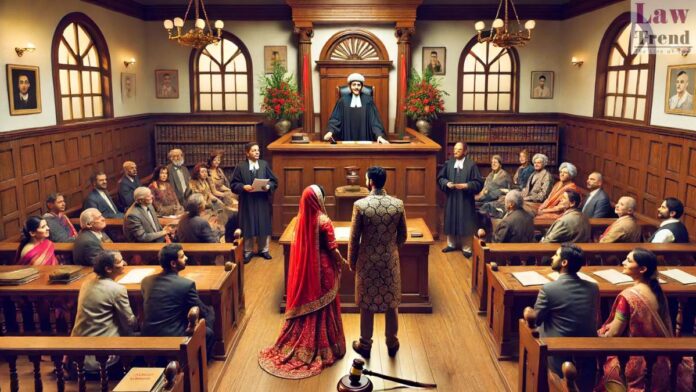In a significant judgment, the Allahabad High Court dissolved a marriage, stating that no spouse should be compelled to endure a matrimonial relationship under the threat of malicious criminal prosecution. The court observed that such circumstances constitute mental cruelty, making it untenable for a marriage to continue. Background of the Case The case involved two
To Read More Please Subscribe to VIP Membership for Unlimited Access to All the Articles, Download Available Copies of Judgments/Order, Acess to Central/State Bare Acts, Advertisement Free Content, Access to More than 4000 Legal Drafts( Readymade Editable Formats of Suits, Petitions, Writs, Legal Notices, Divorce Petitions, 138 Notices, Bail Applications etc.) in Hindi and English.




